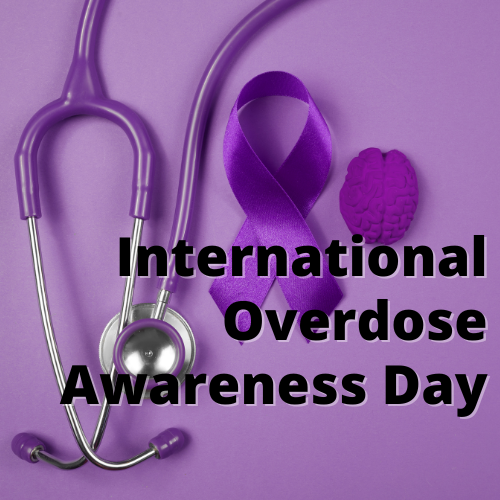
International Overdose Awareness Day
International Overdose Awareness Day is August 31st
Since 2001, International Overdose Awareness Day communities across the globe have held events to raise awareness and honor those that have lost their lives due to overdose.
Year over year, overdose deaths continue to rise. From the years 2019 to 2020, those deaths jumped by 30%. While the deaths were less in 2021, the total number of deaths is still the highest annual overdose deaths ever recorded in the United States.
Goals of International Overdose Awareness Day
- Provide an opportunity for people to publicly mourn loved ones in a safe environment, without stigma
- Give community members information about the issue of fatal and non-fatal overdose
- To send a strong message to current and former people who use drugs that they are important
- Encourage discussion about overdose prevention
- To provide basic information on the range of support services available
- Prevent and reduce substance-related harm by supporting evidence-based policy and practice
- Inform people around the world about the risk of overdose
Mechanism of substance use disorder
Substance use disorders are a mental, neurological based disorder. This is because there are adverse effects and changes with brain development and function. Most drugs function in the reward centers of the brain. This triggers neurotransmitters like dopamine or serotonin. Prolonged usage can cause the development of tolerance when the receptors in the brain becoming adjusted to the same dose(s). Individuals who misuse substances earlier than their mid-20s have a higher chance of developing a substance use disorder later in life. This is because the brain is still developing into an individual’s 20s.
Co-occurrence with other mental health disorders
Substance use disorders often co-occur with mental health disorders. Those who misuse substances have a higher chance of developing a mental disorder and vice versa. For example, 45% of those who sought treatment for substance use disorder in the past year were diagnosed with a co-existing mental health disorder. It is important to be screened for any co-occurring disorders to ensure you have a complete plan for recovery.
How to get help
Everyone’s recovery journey is unique. Once out of treatment it’s important to work with your counselor on next steps because it allows the individual to stay on target with their recovery goals.
Here at Lifeline Connections, we offer all of these things with our substance use treatment services and recovery community. Additionally our compassionate counselors are a phone call away to help you start your recovery journey. Call (360) 397-8246 ext. 30500 to schedule an admit appointment.
